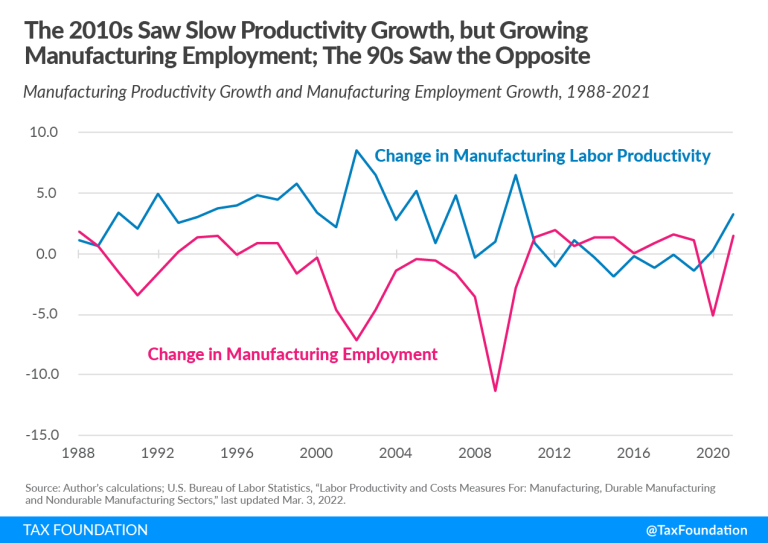Honeywell Champions Next Generation Innovation for Affordable High Quality Solutions

Innovative Renewable Fuels Technology in the Maritime Sector
The renewable fuels landscape is undergoing a significant change, and Honeywell’s latest press announcement has steered us into an era of innovation. Honeywell has unveiled a breakthrough that converts agricultural and forestry residue into renewable fuels that are immediately usable in the maritime sector. With an emphasis on low-cost production and high quality output, this new technology is designed to create lower-carbon marine fuel, gasoline, and sustainable aviation fuel from abundant resources such as wood chips and crop residues.
This significant leap forward comes at a time when several industries—especially shipping companies—are seeking cost-effective and lower-carbon alternatives to traditional heavy fuel oil. The maritime industry, known for its tricky parts and tangled issues regarding environmental impact, stands to benefit greatly from a technology that not only mitigates emissions but also reduces operational expenses.
Modular Biocrude Upgrading Platforms: A New Approach to Renewable Fuel Production
Honeywell’s press release highlights a transformative approach through a modular plant design for Biocrude Upgrading process technology. This prefabricated modular system helps customers reduce risk by minimizing complicated pieces related to traditional site construction. By delivering a compact and modular unit, companies can easily figure a path to accelerate project timelines and manage installation challenges.
One of the most appealing aspects of this technology is its ability to process biomass directly at the feedstock collection sites. Agricultural and forestry waste, which normally poses a disposal challenge, is instead transformed into valuable biocrude with lower transport costs. This process not only cuts down on the need to move bulky feedstock over long distances, but it also helps shipping companies derive super important benefits that extend well beyond environmental gains.
- Prefabricated modular plant design reduces on-site construction efforts
- Decentralized collection minimizes expensive transportation
- Simplifies process integration with existing infrastructure
- Provides a scalable solution adaptable for various facility sizes
Cost-Effective Alternatives to Traditional Heavy Fuel Oil
For ship operators, heavy fuel oil has long been a nerve-racking and overwhelming staple of the maritime sector. Having been the principal energy source since the 1960s, heavy fuel oil is now recognized as a major contributor to global greenhouse gas emissions. With its high energy density, Honeywell’s newly introduced renewable marine fuel provides a ready-to-use alternative that doesn’t disrupt a vessel’s operation, thereby avoiding the need for costly engine upgrades.
This renewable fuel offers a practical solution that addresses several small but critical distinctions between conventional fuels and bio-based alternatives. Compared to many current biofuel options, the new fuel stands out due to its higher energy density, meaning that vessels can extend their operational range without compromising performance.
Shipping companies stand to benefit in ways that go beyond just the fuel cost. The following table outlines some of the key advantages:
| Advantage | Benefit |
|---|---|
| Lower Transport Costs | Biomass is converted at the source, reducing logistics expenses. |
| Energy Density | Enables increased range and efficiency without significant modifications. |
| Drop-In Capability | Fuel can be integrated into existing ship engines without costly retrofits. |
| Emissions Reduction | Provides a lower-carbon profile crucial for environmental compliance. |
This table underscores how the new technology provides a compelling cost-benefit dynamic that resonates strongly with industry stakeholders.
Regulatory Demands and Environmental Responsibility
Global regulatory pressures have pushed industries, particularly oil-dependent sectors like maritime shipping, to figure a path toward an environmentally sustainable future. There is a growing need among ship operators to reduce emissions and meet stringent environmental standards imposed by international regulatory bodies. In this context, Honeywell’s breakthrough represents a fresh way to tackle the previously overwhelming issues associated with transitioning to renewable energy.
As government regulations continue to become more strict, companies face numerous confusing bits and twists and turns when trying to ensure compliance while remaining profitable. Honeywell’s modular Biocrude Upgrading technology simplifies these issues by being easily adaptable to different production scales and market requirements. This adaptability is particularly beneficial in regions where regulatory landscapes can be full of problems and the changes feel intimidating.
Key regulatory and environmental highlights include:
- Reduction in greenhouse gas emissions
- Immediate usability in current engine designs
- Streamlined and cost-effective project timelines
- Support for global sustainability targets and policies
Broader Implications for Industrial Manufacturing and Automation
Industrial automation and process technology represent major components in this renewable revolution. Honeywell’s energy and sustainability solutions are not just limited to the creation of renewable fuels—they offer a comprehensive suite of services that extend into industrial manufacturing and automation. By integrating process technologies into sectors such as aerospace, commercial buildings, and manufacturing, companies can improve overall process efficiency.
The refined biocrude produced using Honeywell’s modular technology does not just provide fuels; it also demonstrates the finer points of industrial process automation. This is a perfect example of how advanced technology can help industries get into alternative fuels without being chained by the intimidating and often complicated pieces that come with legacy energy sources.
Honeywell’s initiative is set against a broader backdrop where innovations like Ecofining™, Ethanol to Jet, Fischer-Tropsch (FT) Unicracking™, and UOP eFining™ have paved the way for the creation of e-fuels. Together, these advancements provide a rich portfolio demonstrating multiple practical approaches to creating environmentally friendly fuels, further empowering businesses to tackle the little twists and subtle details that play a critical role in a sustainable future.
Understanding the Technical Process: From Biomass to Renewable Fuels
The process of converting biomass into renewable fuels is full of the small distinctions that can define success in advanced technology. At its core, Honeywell’s chemistry converts agricultural and plant wastes into biocrude. This biocrude is then upgraded through a refining process that produces a variety of fuels suitable for different sectors, including marine and aviation.
This transformation is achieved by processing the raw biomass through a series of reactors and refining units. The resulting fuel maintains a high energy density, a factor that is critical for modern shipping when compared to other renewable energy sources. By addressing these subtle and sometimes confusing bits in the technical process, Honeywell has effectively offered a solution that integrates seamlessly with existing fuel systems.
This modular technology is designed with several important features:
- Onsite Conversion: Reduces the effort of transporting raw biomass over long distances.
- Energy Efficiency: The refined fuel delivers high energy density, crucial for performance.
- Scalability: The modular design allows facilities to start small and expand capabilities as needed.
- Integration: The drop-in nature of the fuel means existing maritime engines can use it without modifications.
Challenges of Transitioning to Renewable Energy in a Traditional Industry
Adopting renewable fuels in the maritime sector is no small feat. Shipping companies face several challenging aspects as they work through the process of replacing traditional heavy fuel oil with novel alternatives. The conversion involves overcoming nerve-racking issues associated with supply chain logistics, capital investment, and adapting to new regulatory fronts.
These challenges are compounded by the fact that much of the maritime sector is built on legacy systems where modifications can be both time-consuming and expensive. Despite these intimidating hurdles, Honeywell’s approach shows how a clear strategy can help companies steer through the maze of transitioning to renewable energy without compromising performance or profit margins.
The main areas that businesses need to address include:
- Capital Investment: Evaluating the cost versus the long-term savings from fuel efficiency and reduced emissions.
- Infrastructure Overhaul: Upgrading facilities and equipment to handle new forms of fuel could be nerve-racking for some operators.
- Supply Chain Adjustments: Integrating biomass supply lines into traditional logistics networks requires a well-thought-out approach.
- Engine Compatibility: Ensuring that new fuels can be used as drop-in replacements without intense modifications is a key benefit of this innovation.
Impact on Global Sustainability Targets and Economic Growth
The implications of adopting renewable fuels extend far beyond environmental benefits. Transitioning from traditional fossil fuels to renewable alternatives directly supports global sustainability goals, contributing to reduced greenhouse gas emissions and a cleaner environment. Not only is this a win for the planet, but it also opens up new avenues for economic growth through job creation, enhanced energy security, and diversified industrial outputs.
Investments in renewable fuels technology, like Honeywell’s breakthrough, are now full of problems only in their implementation. When companies invest in these technologies, they are not just buying a product; they are investing in a future that promises significant savings, efficiency, and innovative breakthroughs. Over the long term, the benefits of such investments can have a multiplying effect that brings down the overall cost of renewable energy production while also bolstering job markets across industrial manufacturing, automation, and related sectors.
Key economic benefits include:
- Creation of new jobs in manufacturing and process automation
- Reduction in long-term currency outflows by utilizing locally sourced biomass
- Enhanced energy security by reducing reliance on imported fossil fuels
- Positive impacts on local economies through infrastructural investments
The Future of Renewable Fuels Technology: An Evolving Landscape
The unveiling of this new technology is a testament to industry progress and the continuous innovation that is needed to address our global energy challenges. As we take a closer look at the future of renewable fuels, it is clear that the modular Biocrude Upgrading process is only one piece of a much larger puzzle. With growing investments in research and development, other complementary technologies are emerging, further enhancing our ability to produce alternative fuels efficiently and cost-effectively.
Moving forward, several trends are expected to shape this evolving landscape:
- Integration of Digital Technologies: Enhanced process monitoring and optimization will allow companies to fine-tune the production of renewable fuels.
- Increased Government Support: As regulatory pressures rise, governments around the world are likely to provide incentives to support sustainable fuels.
- Cross-Sector Collaboration: Partnerships between technology providers, maritime companies, and regulatory bodies will be crucial for scaling pilot projects into full-scale operations.
- Broadening Application Areas: The same advanced technologies may soon be applied to other challenging sectors, such as aviation and heavy road transport.
Each of these areas presents its own set of tricky parts and tangled issues, but through collaboration and continuous innovation, we are likely to see a smoother transition toward a more sustainable and economically robust future. This is a clear demonstration of how industrial manufacturing, automation, and energy technology can come together to solve some of the most nerve-racking challenges we face today.
Digital Innovation and Process Automation in Renewable Fuels
At the heart of Honeywell’s promise lies its commitment to digital innovation and seamless process automation. The company’s Honeywell Forge platform and integrated operating systems are designed to deliver “smart” technology solutions that help industries figure a path forward while dealing with the hidden complexities of process technology. By leveraging digital tools, companies can monitor operational performance in real time, thereby ensuring that issues are spotted and handled before they turn overwhelming.
Process automation in the renewable fuels sector is crucial not only for efficiency but also for quality control. With digital sensors and automation in place, variations in feedstock quality or operational hiccups can be quickly identified and remedied. This proactive approach eliminates many of the nervous breaks associated with traditional, manual oversight and ensures that the refined product consistently meets the industry’s high standards.
Advantages of digital innovation include:
- Real-Time Analytics: Continuous monitoring of the upgrading process ensures efficiency and consistency.
- Predictive Maintenance: Proactive identification of maintenance needs avoids interruptions in operation.
- Enhanced Compliance: Digital records and monitoring assist with meeting stringent environmental and safety regulations.
- Increased Operational Efficiency: Automated systems reduce human error and the need for constant manual adjustments.
Integrating Renewable Fuels Into a Multi-Sector Economy
The ripple effects of innovations like Honeywell’s new technology extend well into broader industrial and economic ecosystems. Traditionally, sectors such as aerospace, building automation, and manufacturing have operated on separate technological tracks. However, as sustainability becomes a core priority, the lines are beginning to blur, and cross-sector technological integration is becoming increasingly important.
Renewable fuels are set to invigorate multiple segments by offering a super important alternative that not only reduces environmental impact but also contributes to operational resilience. Industries that once relied on traditional processes are now finding new ways to collaborate on managing their energy requirements with renewable resources. This integration nurtures an ecosystem where industrial automation meets inventive process technology, and digital innovations support sustainable energy practices.
As businesses strive to figure a path to a cleaner future, some of the essential points for cross-sector integration include:
- Shared Infrastructure: Investments in modular plants and digital monitoring can be shared across sectors, reducing overall cost.
- Collaborative R&D: Joint research initiatives help in overcoming the overwhelming challenges posed by converting legacy fuels.
- Market Diversification: Renewable fuels can be customized for use in multiple sectors, including maritime, aviation, and heavy industry.
- Regulatory Synergy: Harmonized policies across sectors can improve overall compliance and efficiency.
Practical Considerations: Addressing the Tangled Issues of Implementation
Even though the promise of renewable fuels is bright, companies looking to make the switch must be ready to deal with several practical issues along the way. Transitioning from heavy fuel oil to renewable alternatives involves overcoming a series of confusing bits—ranging from initial capital outlay and logistics management to ensuring long-term fuel stability and performance.
One of the trickiest aspects is the integration of new processes with legacy infrastructure. The modular design of Honeywell’s Biocrude Upgrading technology addresses this head-on by offering solutions that can be seamlessly incorporated into existing operations. By minimizing the need for extensive retrofits or engine modifications, the technology provides a straightforward drop-in solution that eases the transition.
Key considerations during implementation include:
- Infrastructure Adaptation: Assessing existing facilities and determining how new modular systems can be incorporated.
- Supply Chain Coordination: Establishing robust processes for biomass collection and in-situ conversion.
- Cost-Benefit Analysis: Balancing initial capital expenses against long-term savings in fuel and maintenance costs.
- Risk Mitigation: Deploying pilot projects to identify small details that need to be addressed before large-scale implementation.
Stakeholder Perspectives and Industry Reactions
The unveiling of this renewable fuel technology has sparked conversations among industry experts, regulatory bodies, and environmental advocates. Each stakeholder group brings its own set of concerns and expectations. For instance, ship operators are primarily focused on the cost-effectiveness and compatibility of new fuels with existing engine technologies. Their biggest concerns revolve around the potential challenges of integrating a novel fuel system into a well-established operational routine.
On the other hand, regulators are more interested in the environmental implications. Governments around the world are leaning towards innovations that promise a reduction in greenhouse gas emissions without imposing off-putting operational changes on industries. This technology aligns with the global push for sustainability and is likely to receive substantial support from regulatory agencies looking to modernize energy standards.
In a recent industry forum, several participants voiced support for modular, digitally integrated process technologies as the way forward. Here are some common themes expressed by stakeholders:
- Environmental Impact: Acknowledgment of the technology’s potential in significantly lowering carbon footprints.
- Operational Efficiency: Confidence in the ability of modular designs to simplify process upgrades and reduce downtime.
- Economic Benefits: Recognition that lower fuel costs and reduced operational risk can lead to improved profit margins over time.
- Technological Integration: Optimism about how digital tools will further enhance the reliability and performance of renewable fuels.
Opportunities for Small Businesses and Niche Markets
While the scale of Honeywell’s operations might seem intimidating for smaller players, there are significant opportunities for small businesses involved in renewable energy and related process automation. Modular and digitally enhanced process technologies lower the barrier to entry by simplifying the installation and operation of alternative fuel systems. In effect, these systems allow smaller companies to compete on a more even footing with giants in the sector.
Small businesses can explore several avenues stemming from these developments:
- Localized Feedstock Processing: Companies can set up smaller-scale biomass processing plants to serve regional markets.
- Service and Maintenance: The growing complexity of digital process automation creates opportunities for firms specializing in maintenance and process management.
- Technology Integration: Small tech companies can develop supporting solutions that integrate monitoring and analytics with modular renewable fuel systems.
- Consultancy Services: With many businesses seeking guidance on transitioning to renewable energy, consultancy and advisory services present a lucrative niche.
These opportunities illustrate that even within a technology dominated by global players, there remain chances for innovation and profit. Small businesses that can adapt quickly to these changes will have a head start in what promises to be a period of significant industry transformation.
Addressing Supply Chain Challenges and Scalability Concerns
Every new technology brings along its own batch of supply chain challenges and scalability questions. In the case of Honeywell’s modular technology, one of the primary benefits is its ability to convert plant and agricultural waste at the point of collection. This decentralized model alleviates many of the nerve-racking issues associated with long-distance feedstock transport.
However, scaling such operations to meet mass-market demand requires addressing several minor yet tricky areas which include:
- Feedstock Variability: Biomass quality varies by source and region, which can affect the consistency of the final product.
- Infrastructure Investment: Upgrading existing facilities to support decentralized processing requires careful planning and investment.
- Logistical Coordination: Aligning production timelines with shipping schedules demands robust planning tools and clear communication channels.
- Regulatory Compliance: As production scales up, maintaining stringent adherence to local and international environmental standards becomes super important.
Stakeholders must work together to figure a path through these implementation challenges, leveraging the flexibility of modular design and digital process controls to ensure that scalability does not compromise efficiency or quality.
Long-Term Outlook: A Sustainable Maritime Future
As the world steadily moves towards greener energy alternatives, the maritime sector has a unique opportunity to transform its operational landscape. Honeywell’s breakthrough in renewable fuels promises a lower-carbon, more sustainable future for shipping—a sector that has, for decades, been riddled with tension over its environmental impact.
This transformational technology, with its cost-effective, drop-in fuel capability, is positioned to change the way industries traditionally reliant on heavy fuel oil operate. By offering an immediate, ready-to-use solution, the technology allows shipping companies to take a much-needed step towards meeting global sustainability goals.
Looking forward, the integration of modular designs, digital innovations, and decentralized processing in renewable fuel production will likely serve as a model for other energy-intensive sectors. This cross-industry influence can create a domino effect wherein innovations in one sector spur transformative changes in another, ultimately leading to a cleaner and more sustainable global economy.
Moreover, as international regulatory frameworks become more supportive of renewable technologies, the economic and environmental incentives for such innovations will continue to grow. Companies that can harness these advances will not only benefit from improved operations and reduced emissions but will also gain a competitive edge in an increasingly sustainability-focused market.
Drawing Conclusions: Balancing Innovation With Practicality
In summary, Honeywell’s new technology offers an innovative yet practical solution for converting biomass into renewable fuels that are immediately applicable to the maritime industry. The technology is designed to address a series of challenging aspects—from reducing complex supply chain issues through onsite biomass processing to delivering a drop-in fuel option that meets the slight differences required by modern maritime engines.
Despite the nerve-racking issues and complicated pieces involved in adopting new energy alternatives, the modular design and digital integration offered by Honeywell pave the way for a smoother and more efficient transition. This breakthrough is destined to challenge old paradigms and stimulate a broader discussion about sustainable industrial practices.
The key takeaway is that while the transition to renewable fuels presents several overwhelming hurdles, the benefits—in terms of cost savings, environmental improvements, and enhanced operational efficiency—are substantial. By embracing modular and digitally integrated designs, industries can effectively steer through the twists and turns of this evolution while actively contributing to a cleaner and more sustainable future.
Ultimately, the success of such innovations relies on an industry-wide commitment to pushing past the confusing bits and tangled issues that have traditionally held back the adoption of renewable energy. Companies that are proactive in adopting these technologies will likely emerge as leaders in the new energy landscape, setting an example for others to follow.
Final Thoughts: Embracing a Green Maritime Renaissance
The announcement from Honeywell signifies more than just the introduction of a new product—it heralds a transformative shift in how industries can capitalize on renewable energy alternatives. By converting agricultural and forestry waste into high-quality fuels, Honeywell is not only solving long-standing environmental challenges but also offering a financially attractive solution for maritime operators.
Through modular design, process automation, and digital integration, this breakthrough technology offers a clear roadmap that helps solve the tricky parts and tangled issues that have long clouded the path to sustainability. As businesses and regulators start to work together to take the wheel of this changing landscape, the development provides a super important signal that the era of fossil fuels is drawing to a close.
With increased focus on greener solutions across industrial manufacturing, aviation, and beyond, Honeywell’s innovation has set the stage for a broader green maritime renaissance. In a world where both economic and environmental factors are tightly intertwined, investments in clean energy become not just a moral obligation but a strategic business decision.
As we look into the future, it is clear that the integration of these new renewable fuel technologies will drive significant change within the maritime industry and beyond. It will challenge traditional methods, spark broader shifts in industrial processes, and ultimately contribute to a more sustainable, economically vibrant global economy.
It is an exciting time for businesses ready to embrace the future. By taking advantage of modular systems and digital innovations, companies can confidently make their way through the myriad of challenges that arise with change. Honeywell’s new technology is a vivid reminder that even in an age riddled with tension and full of problems, there remains a powerful drive toward creativity, efficiency, and sustainability in business operations worldwide.
Originally Post From https://www.honeywell.com/us/en/press/2025/10/honeywell-introduces-new-innovative-technology-that-produces-low-cost-high-quality-renewable-fuels-from-biomass
Read more about this topic at
Honeywell Introduces New, Innovative Technology That …
Renewable fuels – Renewables 2024 – Analysis






